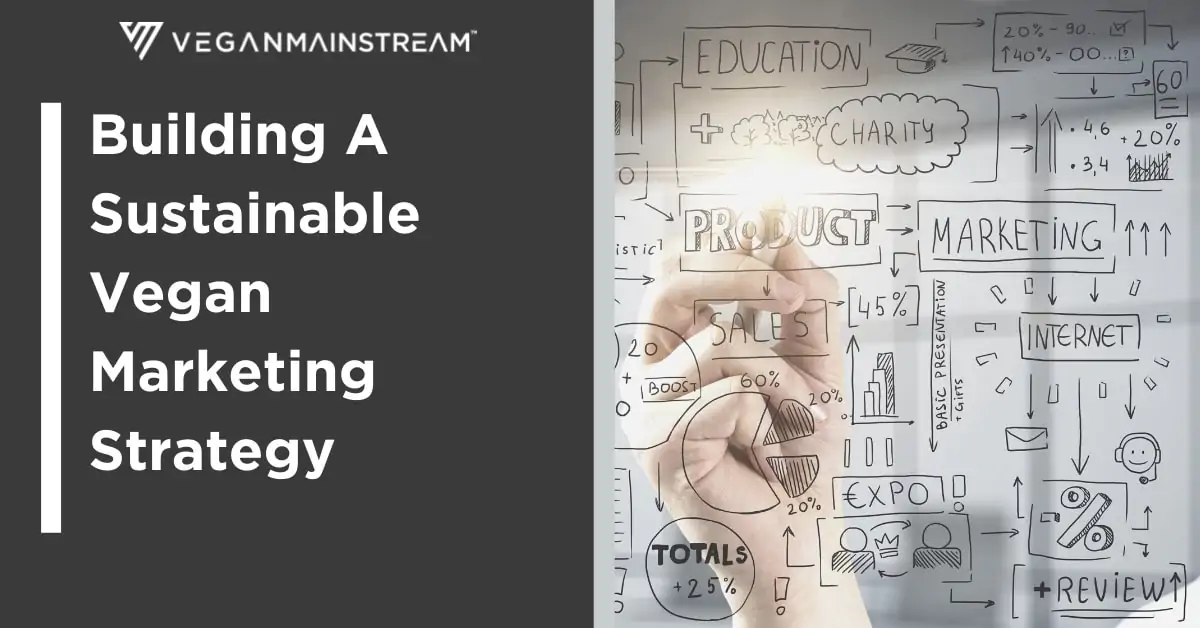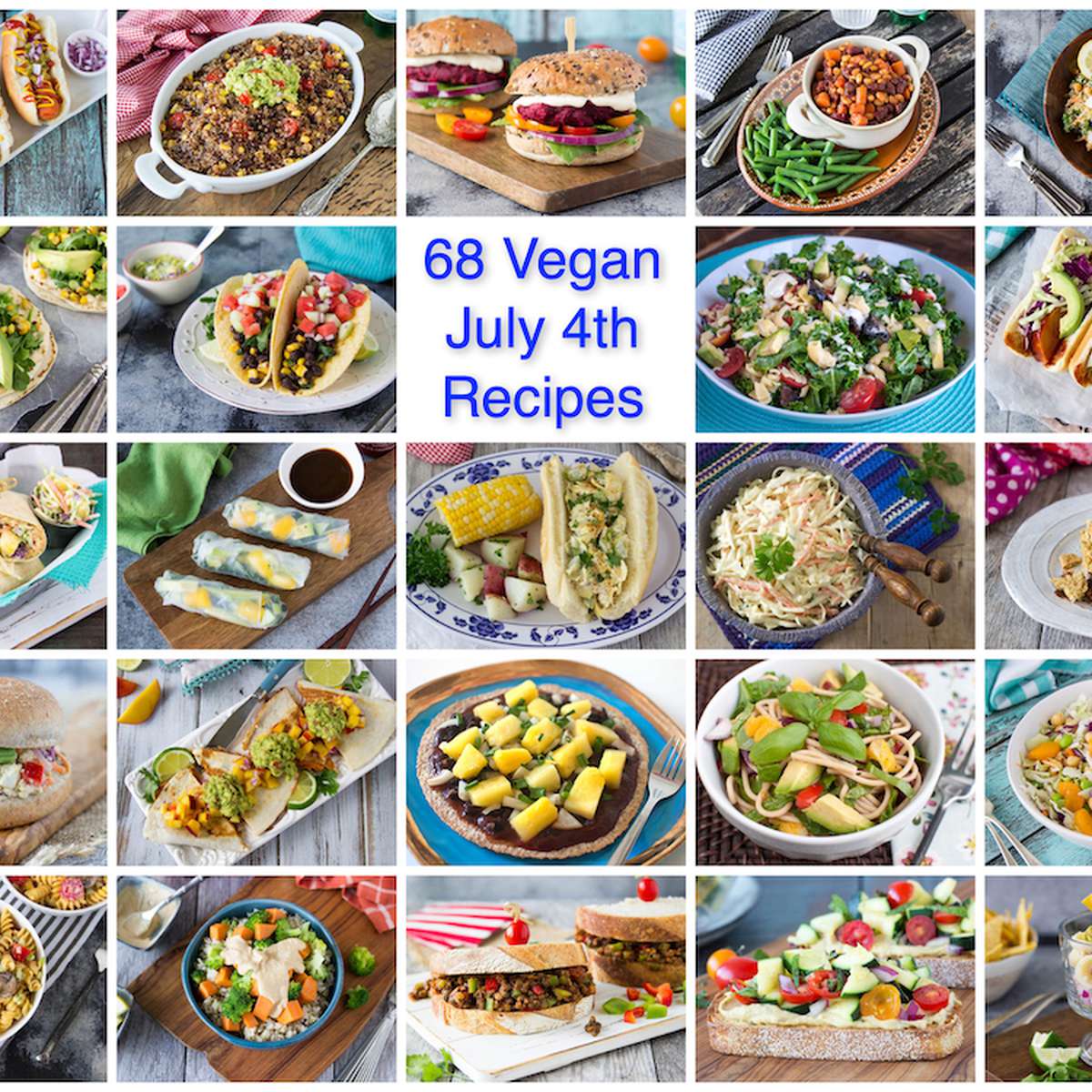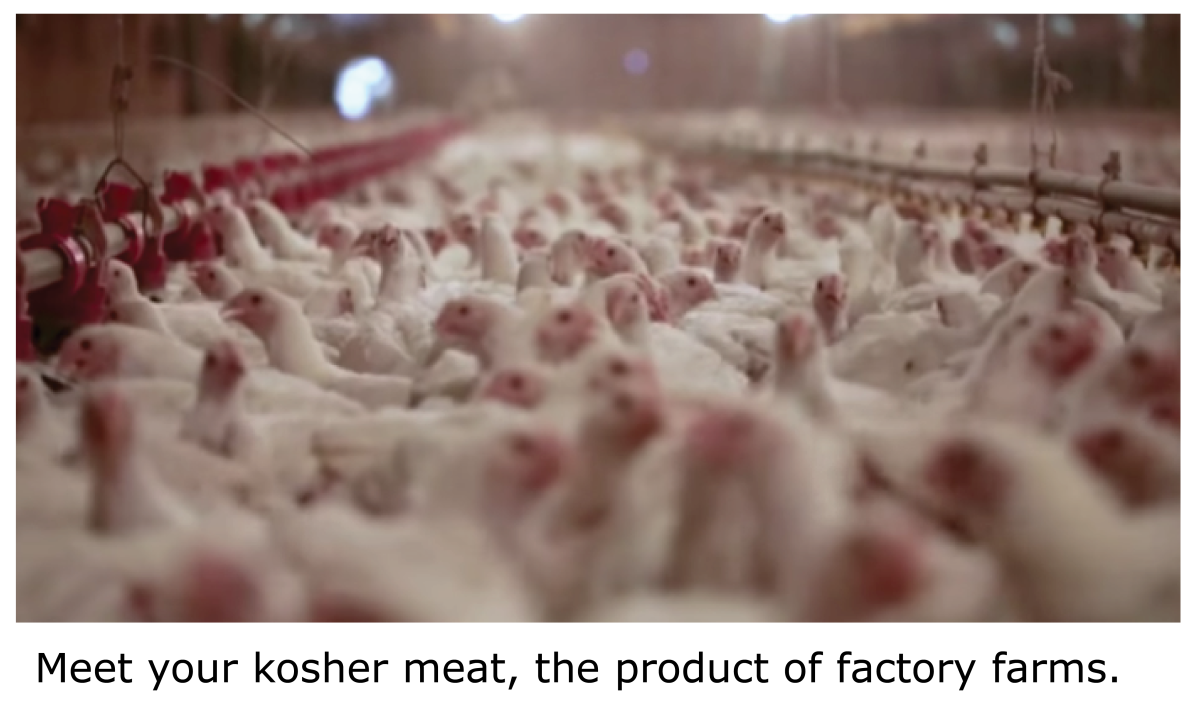One of the biggest challenges when marketing your vegan brand is figuring out where to put your focus when it comes to your vegan marketing strategy. There are so many marketing options and approaches to explore, and as you get started it’s easy to get overwhelmed. This is partly because when you hear about all the different ways people have grown their vegan businesses it may feel like you have to do ALL OF IT to succeed.
Here’s some food for thought. While it’s great to have a diverse vegan marketing strategy, too many marketing tricks can wreak havoc in a business. But how do you find that perfect balance? How can you figure out how much diversity you need in your marketing to create success for your business, without going overboard?
Ultimately your vegan marketing strategy should link back to your business goals. But if you’re just getting started with your vegan business you may not yet have gone through the process of setting goals, and I want to give you a place to start. Instead of providing the traditional advice to plan your business goals and then build your marketing strategy, I’m going to share my baseline approach with you today.
I suggest that you design your vegan marketing strategy around four foundational pillars. These pillars are:
- Build a community around your vegan brand.
- Dedicate time to supporting, educating and empowering your community.
- Find a reliable way to reach your ideal customers and curated groups outside of channels that you own so your community can grow.
- Develop a system that helps continuously convert prospects into clients/customers.
Why these pillars?
The pillars of this vegan marketing strategy are anchored in the idea that your marketing should attract a steady and continuous stream of customers. If your digital marketing efforts are based on reactionary tactics, trendy ideas and crisis sales campaigns, your days will be stressful and primarily spent chasing the next big thing. Instead, I encourage my clients to create a core marketing plan that is consistent and smooth. To minimize marketing stress and reduce the feeling of overwhelm you must build stability into your digital marketing. You can do this by building solid relationships with your potential customers and establishing a community that can help shape your business.
This might sound like theory, but I assure you it’s a practical and hands-on marketing approach. The work that you did yesterday, the work you are doing today, and the work you will do this week and next month should all build upon itself. If it does, running your vegan business will get easier and more streamlined over time.
What makes marketing “vegan”?
Just as you veganize a dish, you can veganize your marketing. How? By ensuring that your vegan marketing strategy and practices align with your vegan ethics. Marketing tools are universal, but the difference is in the tone you set.
A common misconception is that vegan businesses are supported mostly by the vegan community. But as a vegan business owner, you should be including people who are both inside and outside of the vegan community (e.g. young people exploring veganism, new vegan consumers and non-vegans). This means your marketing can’t simply be a reflection of your vegan perspective, but must also incorporate the mindset of your customers. Practically, this translates to making your marketing about more than your product/service. Instead, it should be about the greater good that your product/service represents.
A few key considerations:
- Your vegan marketing strategy should focus on the result, experience or transformation that your customer will receive from your product/service since loyalty is grounded in the impact you make on your customer’s life.
- Many people seek out vegan products that meet their personal needs AND ensure they don’t contribute to concerns like animal cruelty or environmental degradation. As vegans, your customers and clients will obviously require products and services that do not exploit or use animals. However, there is an expectation that vegan brands also lead industry change. If your offer is sustainable, cruelty-free certified or renewable, and/or if it reduces waste or supports underserved communities, these added features should be incorporated into your vegan marketing strategy and approach as they strengthen the ethical grounding of your vegan brand.
- Sharing your story and how it aligns with the vegan movement is a wonderful, genuine way to connect and build relationships with your customers based on shared interests, values, vision and passion. Everyone has a vegan journey story – be sure to share yours!
- Test your messaging—especially if a large portion of your market is non-vegan. Market research shows that alternative terms like “plant-based” can be used to reach meat-eaters or non-vegans who might be triggered by terms like “veganism”. If you’re looking to expand your audience, this legwork is well worth the effort.
As a guide, always keep in the forefront of your mind that your digital marketing strategy will be more effective as you increasingly find ways to align your message with the values of your target audience.
Let’s Talk Vegan Marketing Strategy Channels
So how, and what do you need, to get started? Let’s talk about a few different channels, and how you can use them to build your core marketing approach.
Channel: Speaking/Live Events/ Interviews
Purpose: Reaching ideal customers and curated groups
In order to increase the reach of your business, you are going to have to spend time in someone else’s playground. There’s no doubt that this is one of the most effective ways to meet new customers. You can, of course, use other tools and channels for your vegan marketing strategy to build your community, but it’s important that your marketing approach ensures you are consistently introduced to new audiences. A key piece of this is considering the audiences these efforts put you in front of. Specifically, you want to be extending your reach not just to anyone, but to people who fit your target market.
That’s why three of my favorite ways to increase reach in a business are 1) speaking at virtual summits, 2) getting interviewed on podcasts that your customers listen to, or 3) securing opportunities to speak at live, in-person events.
And now a caveat. When I mention speaking opportunities some people immediately look for the biggest stage or want to headline with household names. But I want you to really understand the purpose of this suggestion. Speaking engagements should not be just an opportunity to feed your ego, but rather a chance for you to be of service to your audience. As long as you are in front of your target audience, the size of that audience is less important than your ability to deliver a great presentation. When a potential customer’s first, second or third experience with you involves hearing you deliver a presentation that transforms the way they think, or helps them overcome an obstacle, it becomes much easier to inspire them to become a customer.
Channel: Content Marketing
Purpose: Exhibiting your expertise and educating your audience
To help establish customer confidence in your products and services they must understand why you are different. They must see clearly why they need, or should want, what you are offering. This is where content marketing can be very helpful. Content marketing involves developing a digital marketing channel that allows you to speak directly to your potential customers about who you are, what you do, and how you can help them. In the past many people used blogs to accomplish this. Now it’s more common to do this either through a podcast or video series.
Many people avoid this approach because they think they have to produce a lot of content to master content marketing to integrate it into their vegan marketing strategy. However, I would argue that success in this arena is more about the quality of your content than the quantity. I advise my clients to post or publish less often if that’s what has to happen to keep quality high—one blog post a month, or two podcasts, for example. If you’re in the early stages of building your business I recommend creating five pieces of content that you think will resonate with your audience. Spend 60 days driving traffic to these five pieces and measure the results. When you have identified a few topics that resonate with your ideal customer, then move to a schedule to produce that type of content more regularly. Remember, that might mean monthly or weekly—more isn’t always better. Also, try different formats (articles, blogs, videos, podcasts) because your audience will include people who learn in different ways.
Channel: Social Media Marketing
Purpose: Building a community around your vegan business
When it comes to building community for your vegan business, you can’t ignore the power of social media marketing. Not only are social media platforms a place to share what you have to offer, but once you have built an engaged community, they can be tremendous helpers for your business.
Asking for help from your online community is a great way to keep people engaged and excited about a product/service/business that they love. Don’t limit your ask to spreading the word about your amazing offering—it’s also a great opportunity to turn to your community for feedback when you are looking to improve a product, or when you are launching a new offer. Your vibrant community can help with pricing options, color choices, distribution channels, marketing messaging, or anything you choose to throw out to them. As an added bonus, because social media communities often have a mix of customers, potential customers and raving fans, you can gather insight from people at different stages of the buying process.
When posting on social media, I recommend a lighter touch like one or two posts per week, at least until you determine what your audience needs and wants. Eventually, your goal will be to drive traffic to your website, but the first objective in your social media marketing approach should always be to build relationships with potential customers. Posting is important but the real magic happens when you have a chance to interact with your community via tools like live streaming, direct messages or comments. If you want to learn about how to use social media as part of your vegan marketing strategy, please have a look at our free Social Media training.
Other Digital Marketing Strategies:
Once vegan businesses and vegan brands have mastered these core vegan marketing strategies, the next step is considering advanced techniques like influencer marketing, Facebook Ads or search engine optimization.
A sustainable vegan marketing strategy is built from the ground up. It needs a solid foundation, and once that is established other approaches and techniques can act as blocks that build on top of each other. For example, online advertising should only be layered on top of a successful social media marketing campaign, not used as a sole initiative. When you run Instagram ads on content that is already performing well, you can easily amplify results. This is the most effective way to systematically strengthen and improve the marketing for your vegan business..
That’s A Wrap
As you’re getting started marketing your vegan business, remember to stay focused, start small and diversify over time, and do it strategically. Keep track of what you are doing, what works and what doesn’t. It’s a game that constantly changes and evolves, making it challenging and exciting all at the same time. If you keep the four pillar approach I’ve described in mind, and base your efforts around your customer, you will always have a path to follow. This will help you find your way through the noise to a vegan marketing strategy and approach that truly works for your vegan business for the long term.









